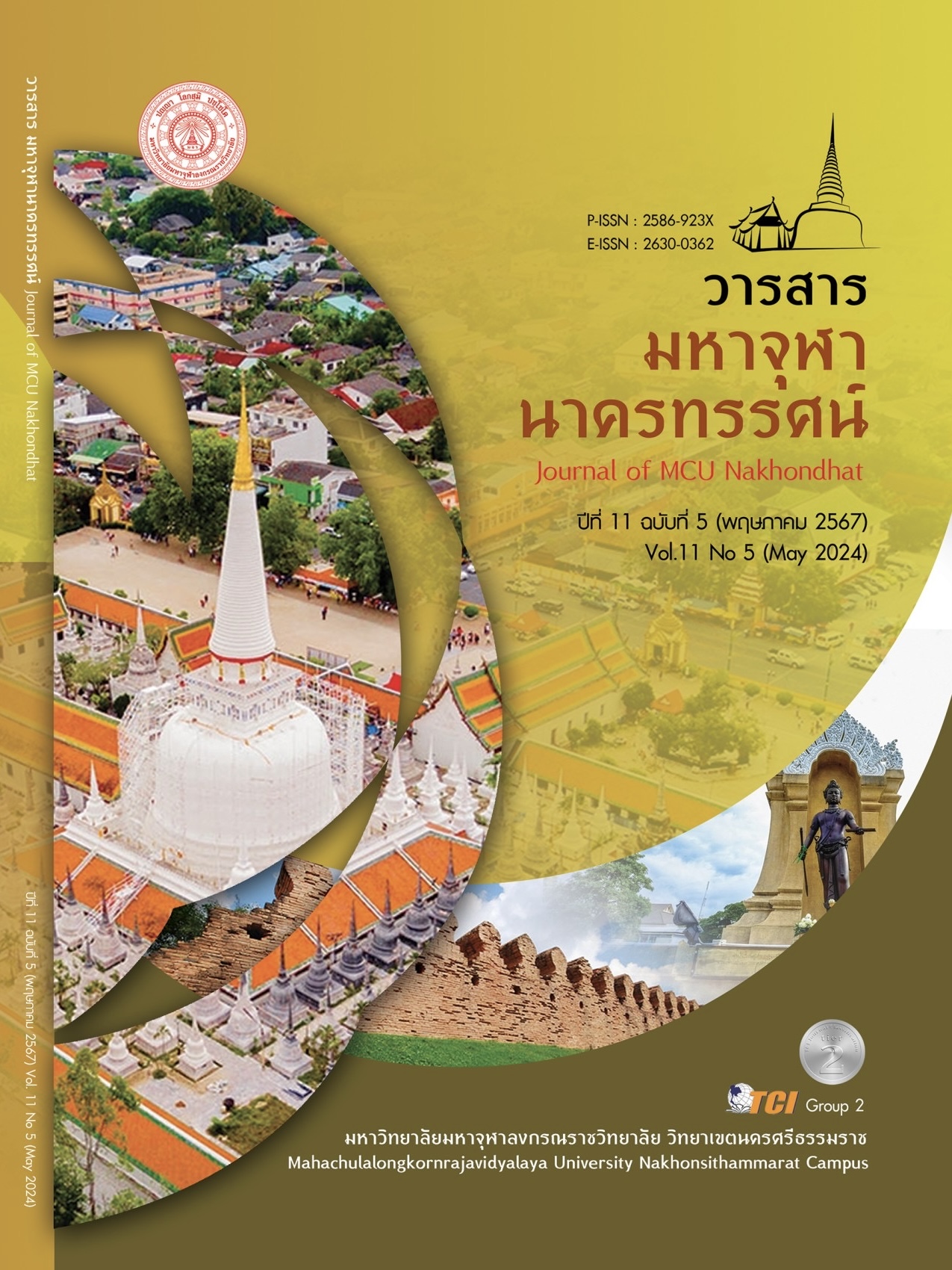GUIDELINES FOR TEACHING AND ORGANIZING SOCIAL STUDIES LEARNING IN THE 21ST CENTURY
Main Article Content
Abstract
In the 21st century, the world is changing rapidly and complexly. Organizing social studies learning is therefore very necessary to develop students' potential to be ready for future challenges. This article explores how to provide social studies learning that is appropriate for the 21st century, focusing on essential skills, teaching methods, and the use of technology. Essential Skills Learners in the 21st century must have a wide range of skills to succeed in a complex world. Important skills for learning social studies include: Analytical thinking and problem-solving skills Learners must be able to analyze data. Evaluate the argument and find solutions to problems with critical thinking Communication skills Learners must be able to communicate their ideas and opinions clearly in both speaking and writing. Cooperation skills Learners must be able to work effectively with others on projects and discussions. Information literacy skills Learners must be able to assess the credibility of information sources and identify biases. cultural intelligence skills Learners must have an understanding and respect for diverse cultures. In this regard, it is essential for teachers to understand the teaching methods and learning management of social studies in the 21st century and must use teaching methods that emphasize student participation. hands-on learning Including project-based learning Learner’s work on projects that focus on research, problem solving and presentations. Cooperative learning Learners work together in groups to explore topics and develop perspectives. Flipped learning Learn basic content at home and use class time for discussions and interactive activities, etc.
Article Details

This work is licensed under a Creative Commons Attribution-NonCommercial-NoDerivatives 4.0 International License.
References
กนก จันทร์ทอง. (2560). การสอนสังคมศึกษาในศตวรรษที่ 21. วารสารวิทยบริการ มหาวิทยาลัยสงขลานครินทร์, 28(2), 227 - 241.
กรมวิชาการ. (2554). หลักสูตรแกนกลางการศึกษาขั้นพื้นฐาน. กรุงเทพมหานคร: ไทยร่มเกล้าจำกัด.
กระทรวงมหาดไทย. (2556). การทำงานร่วมกัน. กรุงเทพมหานคร: โรงพิมพ์อาสารักษาดินแดน กรมการปกครอง.
สำนักงานคณะกรรมการมาตรฐานการบริหารงานบุคคลส่วนท้องถิ่น. (2565). การทำงานเป็นทีม. เรียกใช้เมื่อ 2 มีนาคม 2567 จาก http://www.local.moi.go.th/team.html
ฐากร สิทธิโชค. (2022). แนวทางในการพัฒนาการจัดการเรียนรู้สังคมศึกษา. กรุงเทพมหานคร: สำนักพิมพ์จุฬาลงกรณ์.
บริษัท เอชซีดี อินโนเวชั่น จำกัด (สำนักงานใหญ่). (2566). 5 ขั้นตอนคิดเชิงวิเคราะห์ (Analytical Thinking). เรียกใช้เมื่อ 26 กุมภาพันธ์ 2567 จาก https://www.sasimasuk.com/16697109/5
พระยุทธนา มาลาวํโส (มาลาวงษ์) และคณะ. (2022). การพัฒนาการจัดการเรียนรู้ วิชาพระพุทธศาสนา โดยใช้วิธีสอนแบบเชิงรุก เพื่อส่งเสริมทักษะการคิดวิเคราะห์ สำหรับนักเรียนชั้นประถมศึกษาปีที่ 6. วารสารการบริหารนิติบุคคล, 8(8),215-226.
มานิตย์ ไชยกิจ. (2557). แนวทางการบูรณาการการเรียนการสอน กับการวิจัยและการบริการวิชาการแก่สังคมของสถาบันอุดมศึกษา. วารสารศึกษาศาสตร์ มหาวิทยาลัยนเรศวร, 16(2), 205 - 213.
สุรสิทธิ์ วิทยารัฐ. (2549). การสื่อสารเพื่อการพัฒนา. กรุงเทพมหานคร: มหาวิทยาลัยราชภัฏสวนสุนันทา.
อารี รังสินันท์. (2527). ความคิดสร้างสรรค์. กรุงเทพมหานคร: ธนกิจการพิมพ์.
AhaSlides. (2564). กลยุทธ์การเรียนรู้แบบร่วมมือเชิงปฏิบัติการ. เรียกใช้เมื่อ 3 มีนาคม 2567 จาก https://ahaslides.com/th/blog/cooperative-learning-strategies/
Starfish Labz. (2563). การใช้เทคโนโลยี เพื่อสนับสนุนการจัดการเรียนการสอน. เรียกใช้เมื่อ 3 มีนาคม 2567 จาก https://www.starfishlabz.com/blog/760
Starfish Labz. (2565). บูรณาการการเรียนรู้ในศตวรรษที่ 21. เรียกใช้เมื่อ 26 กุมภาพันธ์ 2567 จาก https://www.starfishlabz.com/blog/249-21


